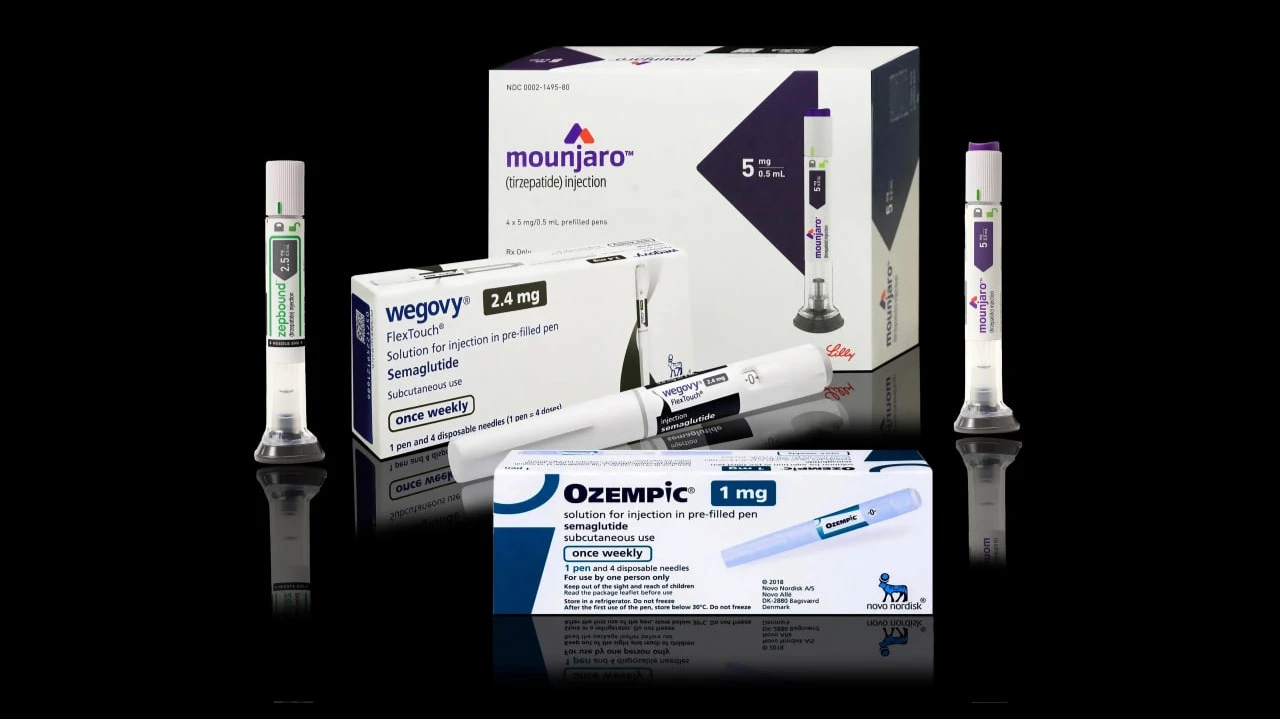Viking shares fall 45% due to drug tests. Have the risks for Novo and Eli been reduced?
Side effects of Viking's obesity pill upset investors

Shares in pharma company Viking Therapeutics plummeted more than 45% after the publication of new data on its obesity drug in tablet form. Phase 2 trials confirmed an average 12.2% weight loss over 13 weeks, but the rate of early treatment interruption was unexpectedly high. A weight-loss drug in pill form could be a new breakthrough in a market currently dominated by drugs from Denmark's Novo Nordisk and US-based Eli Lilly. Their securities rose on the back of Viking's failure.
Details
Shares of Viking Therapeutics, a pharmaceutical company that develops diet pills, were down 44.9% to $23.21 at the moment in trading on Tuesday, August 19. That marked the lowest since mid-April.
Viking has reported the results of a phase 2 trial of its experimental obesity pill VK2735. The new data showed that the side effects may be much more serious than expected, writes Barron's.
The company said that in the second phase of clinical trials, patients who took VK2735 daily lost about 12.2% of body weight over 13 weeks (this is the median value: so half lost more, half lost less). At the same time, 28% of patients receiving the drug stopped treatment early, compared with 18% in the placebo group. A quarter of patients taking Viking reported vomiting (10% among those taking placebo) and 58% reported nausea (48% with placebo).
By comparison, US pharma giant and one of the market leaders in weight loss drugs Eli Lilly presented the results of trials of its experimental obesity pill on August 7. The Lilly study lasted significantly longer - 72 weeks - and the early treatment discontinuation rate was 21.9% and 24.4%, depending on the dosage.
Lilly shares were up about 1.7% in trading on Aug. 19, while American depositary receipts of Danish pharma giant Novo Nordisk, maker of Ozempic and Wegovy, were up about 1.2%.
What Viking said
In a call with investors on the morning of Tuesday, August 19, Viking management tried to allay concerns about the side effects data, Barron's reports. Managers pointed out that discontinuation rates among patients who received placebo were also high, and suggested that patients may have abused reports of abdominal problems because they are widely known side effects of that class of drugs, the publication reported.
"I don't know why the placebo group and baseline were higher; it's possible - this is just a guess - that because of the expectation of GI adverse events, people are becoming more sensitive or anticipating them in advance, and that may be increasing the frequency of reports," Viking CEO Brian Lean said during the call (quoted in Barron's).
What are the analysts saying?
Weight-loss drugs in pill form could be a new breakthrough for this market, but so far such developments are facing problems, Bloomberg wrote. For example, pharma giant Pfizer has abandoned its such development.
In addition to the injectable drugs Wegovy and Zepbound already on the market, Eli Lilly expects to launch orforglipron in a pill next year, and Novo is pushing to launch a drug it calls "Wegovy in a pill" that showed a 16.6% weight loss in a phase 3 trial, Barron's notes.
In a direct comparison, Eli Lilly looks much better than Viking, Mizuho health strategist Jared Holtz said in Barron's outline. "This likely dashes Viking's hopes of becoming a serious player in the oral obesity drug market in the near to medium term," the analyst said.
But the Viking drug did beat analysts' expectations on some measures. In an Aug. 12 note, William Blair analyst Andy Shea wrote that he expected a placebo-adjusted weight loss of "just under 7% for the highest doses," Barron's noted. On Tuesday, Viking said a 10.9% reduction for the highest dose and 9.8% for the next highest dose.
Cantor analyst Steve Sidhouse expressed bewilderment at the scale of the sell-off in Viking shares on Tuesday. The company said that a separate arm of the oral VK2735 trial tested a weight maintenance regimen: after a high-dose course, patients were switched to a low-dose regimen and maintained the results achieved. According to Sidhouse, the maximum doses tested were not originally intended for commercial use, but the intermediate dose of 30 mg looks quite competitive, reports Barron's.
"Overall, this is a very compelling data set: it allows Viking to keep the oral VK2735 as a backup 'trump card up its sleeve' to strategically capitalize on in the future," Sidhouse wrote.
Viking's stock has been rated by 17 analysts, with 15 of them recommending Buy (Buy and Overweight ratings) and the remaining two recommending Hold.
What Viking is known for
The company remains one of the top contenders for a share of the weight-loss drug market to compete with Eli Lilly and Novo, Barron's notes.
At present, Viking Therapeutics does not have any drugs in its portfolio that have been approved by the pharmaceutical regulator. Consequently, the company is not selling anything yet and is not generating revenue. At the same time, it has a lot of expenses, and in the next six months it plans to increase them by about 25-30%, as the company's management announced in late July.
Viking is also testing an injectable form of VK2735, which is now in Phase 3 clinical trials. In the Phase 2 trial, patients receiving the injectable version of VK2735 lost an average of 14.7% of their body weight over 13 weeks.
This article was AI-translated and verified by a human editor
